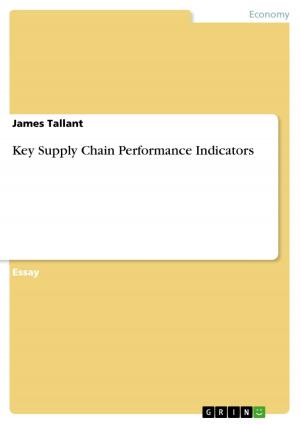The relationship between national identity and hybrid identities facilitated by migration in western multicultural societies
Nonfiction, Social & Cultural Studies, Political Science| Author: | Markus Stegmann | ISBN: | 9783640599615 |
| Publisher: | GRIN Publishing | Publication: | April 21, 2010 |
| Imprint: | GRIN Publishing | Language: | English |
| Author: | Markus Stegmann |
| ISBN: | 9783640599615 |
| Publisher: | GRIN Publishing |
| Publication: | April 21, 2010 |
| Imprint: | GRIN Publishing |
| Language: | English |
Seminar paper from the year 2008 in the subject Politics - International Politics - Topic: Globalization, Political Economics, grade: 2,3, Maastricht University, course: Cultural Diversity and Gender in Global Perspective, language: English, abstract: Nowadays it is easy and cheap for Europeans to travel around the world and even to migrate to a new country. On these trips we can gather a lot of experiences and impressions from different cultures which can have an impact on our identities and values. But we don't need to travel far away to recognize that moving and migrating is possible and happening. Especially our western multicultural societies are attracting people from all over the world to work and live here. These migrants also gather experiences and maybe shift their values and build up a hybrid identity. But not all people want to give up their identity. They want to stay in line with the values of their home country. The question is, whether a hybrid identity can also be a national one, or if a conflict is unavoidable. In this paper I will argue, that there are tensions between the two types of identities. To show this, I will first explain multiculturalism and hybrid identities. By introducing nationalism and accordingly national identities in the second paragraph I will explain the points of conflict between the concepts. At the end there is a conclusion.
Seminar paper from the year 2008 in the subject Politics - International Politics - Topic: Globalization, Political Economics, grade: 2,3, Maastricht University, course: Cultural Diversity and Gender in Global Perspective, language: English, abstract: Nowadays it is easy and cheap for Europeans to travel around the world and even to migrate to a new country. On these trips we can gather a lot of experiences and impressions from different cultures which can have an impact on our identities and values. But we don't need to travel far away to recognize that moving and migrating is possible and happening. Especially our western multicultural societies are attracting people from all over the world to work and live here. These migrants also gather experiences and maybe shift their values and build up a hybrid identity. But not all people want to give up their identity. They want to stay in line with the values of their home country. The question is, whether a hybrid identity can also be a national one, or if a conflict is unavoidable. In this paper I will argue, that there are tensions between the two types of identities. To show this, I will first explain multiculturalism and hybrid identities. By introducing nationalism and accordingly national identities in the second paragraph I will explain the points of conflict between the concepts. At the end there is a conclusion.















